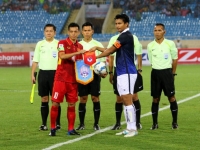Arts
PhotoEspana 2015 focuses on Latin-American photography
From June 3 to August 30
The festival will be a platform exploring the confluences, connections and disjunctions of photography in the region. It will examine Latin American photography´s evolution and complexity, from its origins until the present, assessing contrasting visions, as well as thematic and contextualizing approaches, and featuring both recognized photographers and representatives of recent generations.
The exhibitions will include individual shows by established photographers who haven´t received the exposure due them in our country, such as Mario Cravo Neto, one of the most acclaimed names in Brazilian photography and culture. PHotoEspaña will present the first large retrospective in Europe of his work since his death in 2009. For the first time, this show will feature both his black-and-white and color work, allowing us to discover a new Cravo Neto.
In some cases, the festival´s approach to Latin American photography will come through group shows, with special emphasis on current and emerging photography in the region, permitting the inclusion of an ample spectrum of artists. An example of this approach will be Latin Fire. Other Photographs of a Continent 1958-1996, a group show featuring work from the Anna Gamazo collection.
The festival will receive support for its efforts from collaborations with institutions such as the Centro de la Imagen de México, a partnership resulting in an exhibition appraising current Mexican photography at the hands of Ana Casas Broda, Gabriela González Reyes and Gerardo Montiel Klint. PHotoEspaña will take place from June 3 to August 30, 2015. For this edition and as a consequence of the large number of visitors attending previous editions of the festival, the dates have been extended through August, coinciding with the end of the exhibition season.
Liability for this article lies with the author, who also holds the copyright. Editorial content from USPA may be quoted on other websites as long as the quote comprises no more than 5% of the entire text, is marked as such and the source is named (via hyperlink).







